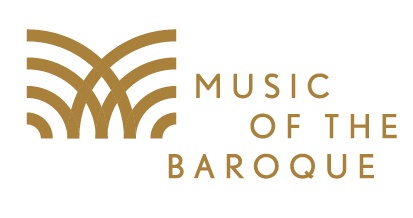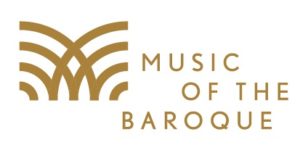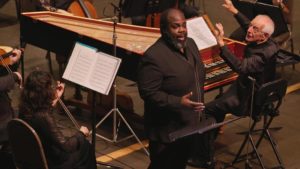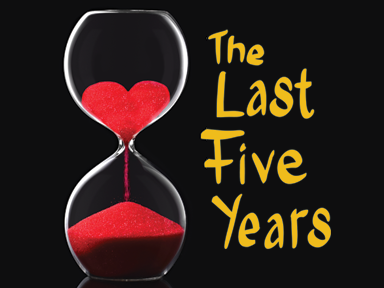
 [rating=4]Conductor and harpsichordist Nicholas Kraemer led the Music of the Baroque (MOB) orchestra in a program featuring the works of Henry Purcell, Johann Sebastian Bach, George Frideric Handel, and William Croft stage at the North Shore Center for the Performing Arts last Sunday. Purcell’s “Welcome to All the Pleasures” Z. 339 led off the program, featuring Nathalie Colas and Hannah Dixon McConnell (sopranos), Margaret Fox (alto), Reginald Mobley (countertenor), Ryan Townsend Strand (tenor) and Kevin Krasinski (bass). This appropriately named composition ushered in the rest of the musical pleasures of the evening, which comprised of a mix of sacred and secular music. The work is also in praise of Saint Cecilia, whose saint day is on November 22nd.
[rating=4]Conductor and harpsichordist Nicholas Kraemer led the Music of the Baroque (MOB) orchestra in a program featuring the works of Henry Purcell, Johann Sebastian Bach, George Frideric Handel, and William Croft stage at the North Shore Center for the Performing Arts last Sunday. Purcell’s “Welcome to All the Pleasures” Z. 339 led off the program, featuring Nathalie Colas and Hannah Dixon McConnell (sopranos), Margaret Fox (alto), Reginald Mobley (countertenor), Ryan Townsend Strand (tenor) and Kevin Krasinski (bass). This appropriately named composition ushered in the rest of the musical pleasures of the evening, which comprised of a mix of sacred and secular music. The work is also in praise of Saint Cecilia, whose saint day is on November 22nd.
Now things really warmed up! The choir (vigorously rehearsed by chorus director Andrew Megill) followed with a four-minute sacred anthem, also by Purcell, called “Hear My Prayer, O Lord” Z. 15. This was followed by his “Fantasia in Three Parts Upon a Ground” Z 731, where the violin trio of Gina DiBello, Kevin Case, and Kathleen Brauer was accompanied by Paul Dwyer on cello, Brandon Acker on theorbo, and Kraemer on harpsichord. What starts out as consonance pleasantly shifts into dissonance as we hear the distinct sounds of each of the instruments. The order of these two numbers was switched from that in the written program, and my suspicion is that it had to do with the way that the stage hands had to set up the chairs, but this is only a guess.
The concert followed with one of my favorites, Bach’s Brandenburg Concerto No. 4 in G Major, BWV 1049. That was when I learned from maestro Kraemer that Felix Mendelssohn, for some reason, disliked this piece of music and hid it, and it was only discovered by a librarian named Siegfried Dehn in 1850. This piece was originally written for the echo flute, which is made up of two flutes in one. (Its use was demonstrated by flautist Patrick O’Malley, using a similar instrument that looks like a geometric divider. What an awesome sound!) Substituting for the echo flute were two recorders, one played by O’Malley and the other by Lisette Kielson. I found it interesting that Kraemer encouraged applause at the end of the allegro section and didn’t save the audience’s approbation for just the very end of the concerto.
After intermission came the star of the evening: the charming countertenor Reginald Mobley, whose vibrant and stirring voice is like liquescent gold. Though he projects nicely, his voice is on the softer side, and a microphone would have helped. Mobley elegantly sang Handel’s Orlando HWV 31 followed by Handel’s Rinaldo, HWV 7 in yet another reversal of the program order.
Next was Croft’s Suite from “The Comedy call’d the Funeral” in eight parts. I loved Kraemer’s comment that this title seems as if it were “out of Monty Python”, and while it “compliments the Purcell”, I found it remarkably different with its focus on different European musical elements throughout: Scottish, English, French, and the like. The composition featured bassoonist William Buchman and oboists Anne Bach and Erica Anderson.
The final number consisted of Excerpts from “Belshazzar”, HWV 61, also by Handel, where Mobley returned as countertenor and was joined by soprano Nathalie Colas. Like the famous “Messiah”, this composition by Handel was written in collaboration with the same English-language lyricist. Note that the Biblical story of Belshazzar has to do with how grateful Daniel the Prophet is to God for the defeat of Babylon by Persia, thus ending the Babylonian captivity of the Jews.
But the program did not end here. In a gorgeous encore, Mobley sang a modern song called “Dream Faces” by Justin Holland and was accompanied by Brandon Acker on Spanish guitar. The music and lyrics of “Dream Faces” are to dream for! The sense I had was that Mobley liked singing the Handel but loved singing this song all that much more. As he told us in the warm up to the song, he feels compelled to promote “hidden composers”, particularly artists of color.
The performance in its entirety was splendid, full of verve, gusto, and variety! I enjoyed listening to Mobley and all of the other wonderful singers and the high quality of the MOB (as usual). That said, I do want to point out a situation that I experienced on Sunday night (which is by no means a complaint, just a comment).
At the very beginning of the evening, Declan McGovern, the executive director of MOB, introduced a short film about the great work that Music of the Baroque has done and will continue to do in the future. When the film ended, it appeared as if one of the audience members had fallen asleep. The snoring was annoying, and the source was someone seated near me, but I couldn’t tell who it was. Shortly afterwards, I decided that this wasn’t snoring after all but, rather, someone’s deep and heavy breathing. The constant noise was not only disturbing to me but to others in the audience as well, and several people turned around to see where it was coming from. It was an especial nuisance while Mobley was singing his Orlando and Rinaldo, because the competition between the soloist’s relatively quiet voice and this individual’s heavy breathing interfered with our enjoyment of the concert. One woman kept shaking her head repeatedly in upset, since it became difficult, if not impossible, to make out Mobley’s words in Italian. After the concert ended, my guest (who has training in CPR) told me that she heard the labored breathing too and thought that this one man was about to have a heart attack. This was just one of those unanticipated occurrences that can happen during a live performance.
Music of the Baroque “Reginald Mobley Sings” took place at the North Shore Center for the Performing Arts, 9501 Skokie Boulevard, in Skokie, on Sunday, November 20, 2022. This was followed on Monday, November 21, 2022, by a performance at the Harris Theater, in Millennium Park, 205 W. Randolph Drive, in Chicago Both concerts started at 7:30 p.m.
For more information about this and future performances of Music of the Baroque, including times, dates, and locations, please go to: https://www.baroque.org/.
Music of the Baroque is a resident company of the North Shore Center for the Performing Arts. To learn more about the venue, their future offerings, and ticket prices, visit: https://northshorecenter.org/.
To learn more about the Harris Theater, their future offerings, and ticket prices, go to: https://www.harristheaterchicago.org/.
These performing arts venues take part in a unified policy requiring patrons to heed current COVID protocols. At the present moment, masks are recommended but not required. This advice can change at any moment. For further information about COVID protocols at the various venues, visit: https://www.baroque.org/2022faq.






More Stories
Our Milwaukee “Staycation” 2025!
Passover
“Chocolate”